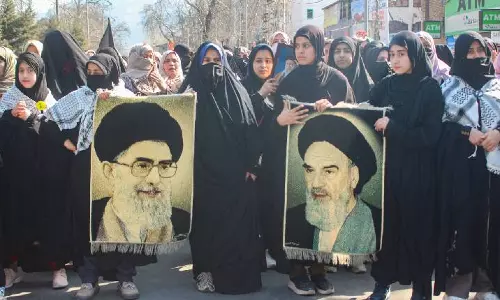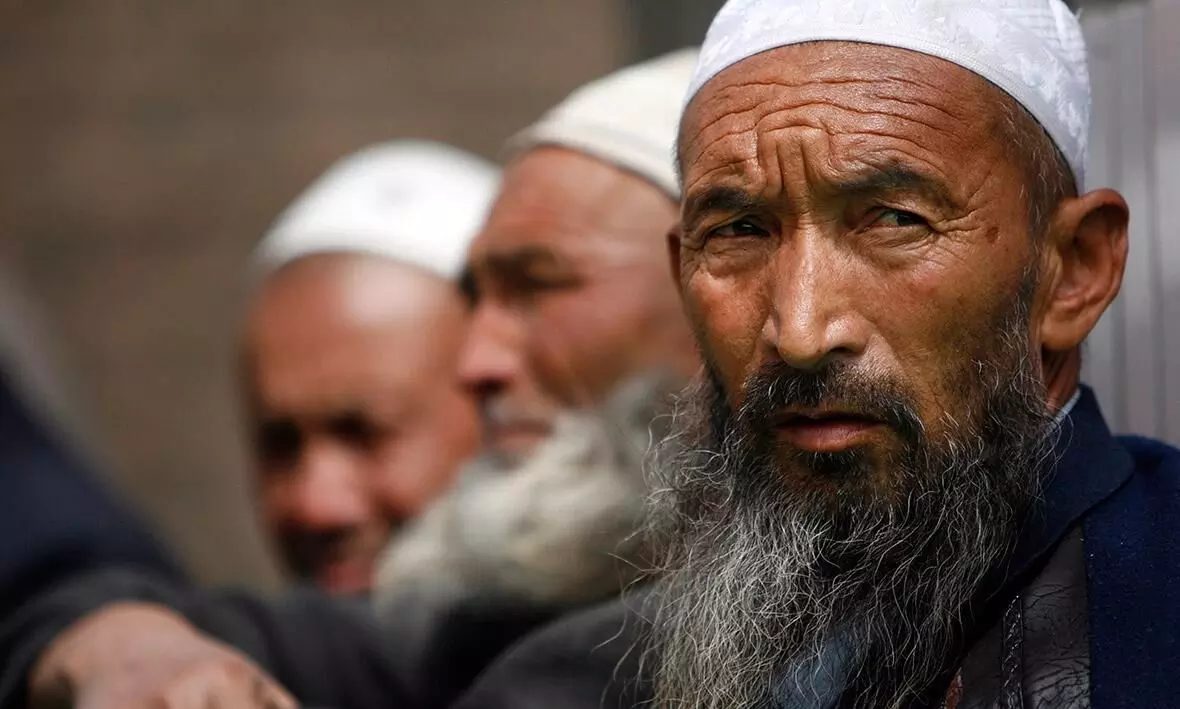
China continues to bar Uyghur Muslims from participating in Haj pilgrimage
text_fieldsChinese authorities have once again prevented Uyghur Muslims from the Xinjiang province from traveling to Saudi Arabia for the annual Haj pilgrimage. According to a recent report from the Islamic Association of China, as of early June, 1,053 Muslim pilgrims were officially registered for Haj, with 769 from Gansu province and 284 from Yunnan province.
Notably, none of the registered pilgrims were from Xinjiang, marking a continuation of policies that have excluded Uyghurs from participating in the pilgrimage for several years.
Participation in the Haj pilgrimage, a religious duty required of all Muslims once in their lives if they are physically and financially able, necessitates government permission in China.
Despite this requirement, Uyghur Muslims have repeatedly been denied the opportunity to fulfil this important religious obligation. The last instance of any pilgrim from Xinjiang being reported by the Islamic Association of China was in 2016.
More recently, in 2023, pilgrims from Ningxia Province and other parts of China were allowed to participate, but none were from Xinjiang.
The exclusion of Uyghur Muslims from the Haj pilgrimage is part of a broader pattern of Chinese policies targeting this minority community. The Chinese government has faced widespread accusations of committing human rights abuses against Uyghur Muslims and other Turkic minorities in Xinjiang. These policies have severely restricted religious practices and fundamental rights for these communities.
Since 2014, it is estimated that approximately one million Uyghur Muslims and other Turkic minorities have been detained in a network of internment camps. In addition to detention, the Chinese authorities have implemented various measures to restrict Islamic practices in Xinjiang.
These measures include banning personal names with Islamic connotations, mandating that mosques display “Chinese characteristics,” and renaming villages with Islamic names. For instance, the village of Aq Meschit, meaning “White Mosque,” was renamed Unity Village, and Hoja Eriq, meaning “Sufi Teacher’s Creek,” was renamed Willow Village.
The Chinese government has also imposed restrictions on traditional Muslim attire and grooming. Bans on hijabs and abayas, as well as restrictions on growing beards, have been enforced. Children have also been affected, with regulations forbidding the use of Muslim names for new-borns.
During the Islamic holy month of Ramadan, Uyghur Muslims face additional persecution and restrictions. Since 2015, teachers, students, and civil personnel in Xinjiang have been prohibited from fasting.
The Education Bureau's rules extend these limitations to children, forbidding fasting and other religious observances in schools. These measures were intensified following inter-ethnic violence in 2009, leading to an increased military presence and heightened security measures throughout the province.
The predominantly Muslim Uyghurs number around 11 million in China’s far-western Xinjiang region. There is a historical dispute between Chinese authorities and Uyghur nationalists regarding the origins of the Uyghur people.
The official Chinese perspective asserts that the Uyghurs formed after the collapse of the Uyghur Khaganate in ninth-century Mongolia, from a fusion of different indigenous peoples of the Tarim Basin and westward-migrating Old Uyghurs. In contrast, Uyghur historians view Uyghurs as the original inhabitants of Xinjiang, with a long and distinct history.
While some Uyghur nationalists claim descent from the Tocharians, contemporary Western experts generally do not support the notion that present-day Uyghurs are directly descended from the Uyghur Khaganate of Mongolia.























